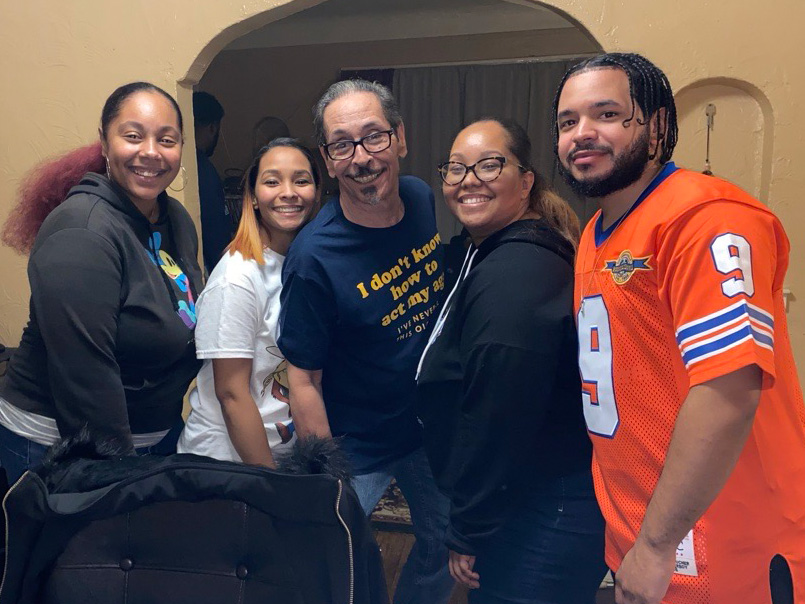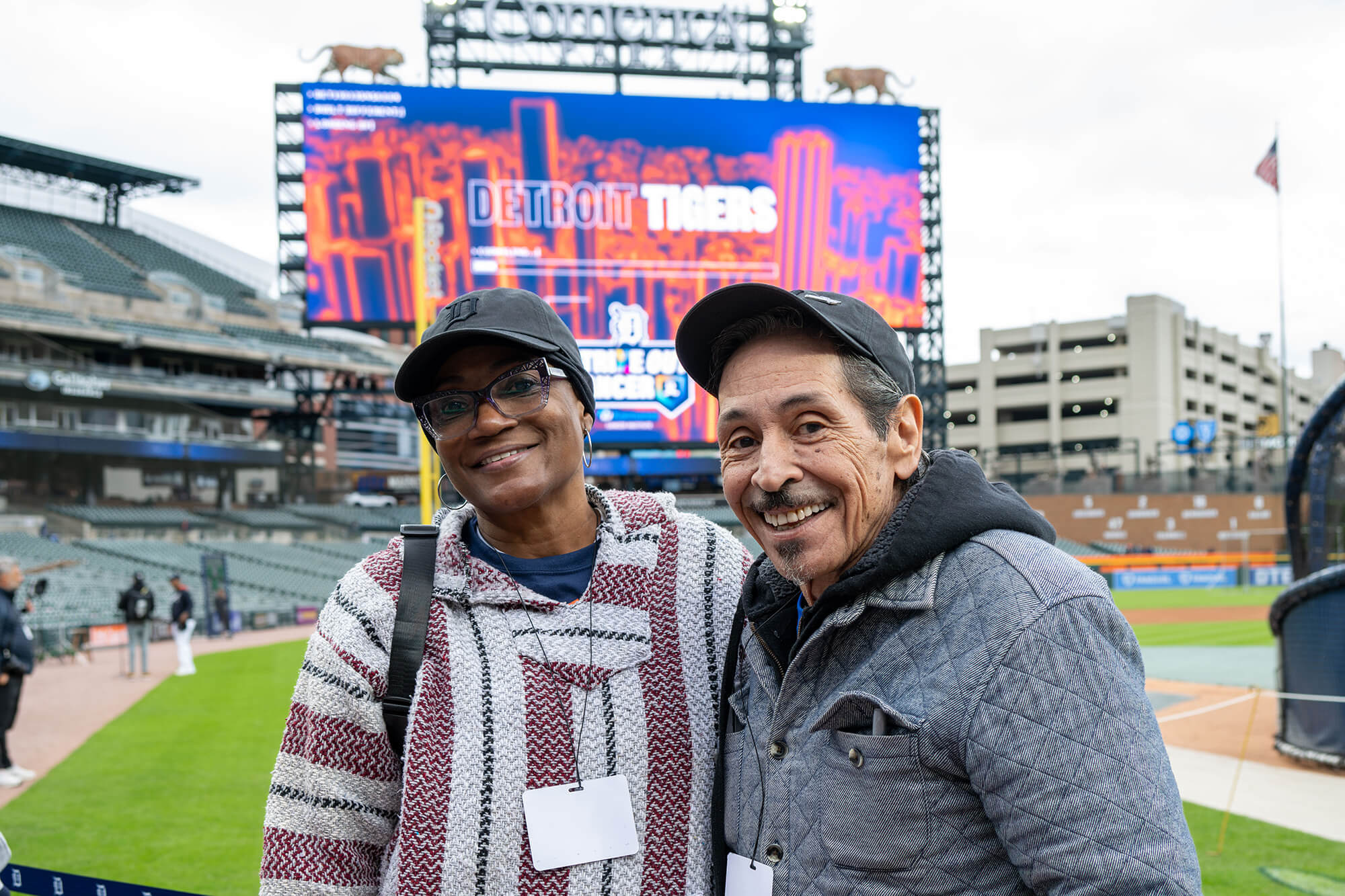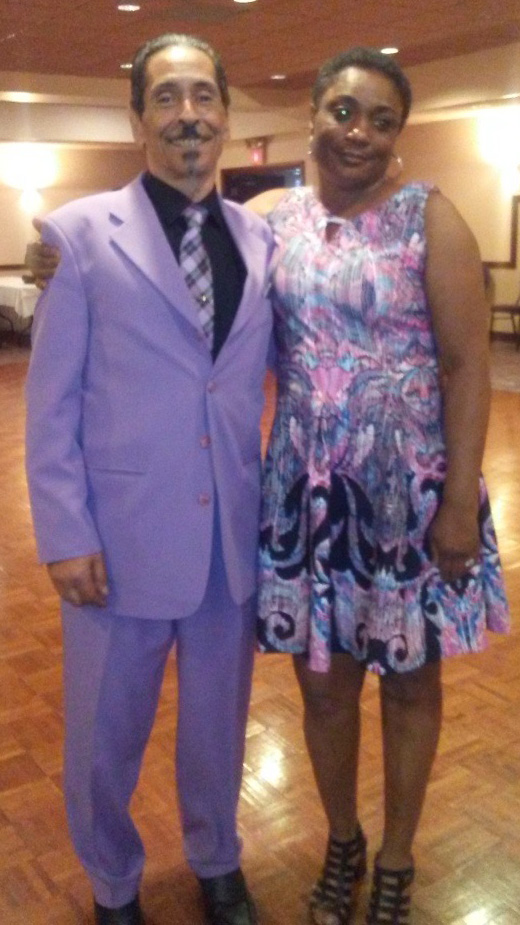“If you care about your life and your family members, get the screenings because they are important."
Lung cancer is still the leading cause of cancer deaths in the U.S. The current lung cancer screening guidelines are in place to help lower the number of deaths due to the disease by catching the cancer in earlier stages. An annual lung cancer screening can save thousands of lives.
Due to his firsthand experience, 69-year-old Edgar Cooper now understands the importance of these screening guidelines. He made some critical life-changing decisions that found his cancer before it spread.
Edgar’s Journey
When asked how long he had been a smoker, Cooper’s answer was, “A long time.”
In 2023, the Detroit resident finally followed through on a promise to quit after years of encouragement from his children.

Edgar and his children.
“I made up in my mind that I wanted to see my grandkids grow up, and my kids had been on me for a while to quit smoking,” Cooper described. “When I told them I was going to quit, they were happy to hear it, and my family support has been great.”
He made an appointment with his primary care physician to see if he could get nicotine patches to assist in his journey. That’s when the doctor recommended a lung cancer screening.
From his decision to quit smoking to his decision to get a lung cancer screening, both likely saved his life. The lung CT scan revealed a nodule in the right upper lobe of his right lung, something he may not have known about for a while if he hadn’t gotten his lung cancer screening at that time.
“I did not have any symptoms. They asked me if I had lost weight, but I had actually gained weight – I had none of the problems they were asking me about.”
At very early stages, lung cancer may not exhibit symptoms. Symptoms may include a persistent cough, coughing up blood, chest pain, loss of appetite, weight loss, fatigue, shortness of breath, wheezing, or recurring or persistent respiratory infections, such as bronchitis.
Cooper’s doctor referred him to Karmanos Cancer Center in Detroit. After a biopsy on the nodule, it was confirmed that he had stage II lung cancer. The plan was set in motion. Cooper would get surgery to remove part of his right lung and chemotherapy. In December of that year, his surgery was performed by David Sternberg, M.D., cardiothoracic surgeon and member of the Thoracic Oncology Multidisciplinary Team (MDT) at the Barbara Ann Karmanos Cancer Institute. During the procedure, Dr. Sternberg found another nodule beside the other. The good news is that the cancer had not spread.
The next part of his treatment brought new challenges. Under the care of Dipesh Uprety, M.D., FACP, medical oncologist and member of the Thoracic Oncology MDT, Cooper began his chemotherapy regimen, but the side effects were too much. It made him sick.
“I told Dr. Uprety that I didn’t want chemo anymore, so he kept pushing with my insurance for immunotherapy until he got the ‘Ok.’ I did a year of immunotherapy,” explained Cooper.
“Toward the end of my immunotherapy, I had very few side effects, but I'm great now. My appetite’s back, and I'm sleeping. I'm doing a lot of things that I wasn't doing before.”
As a retiree, his care at Karmanos allowed him to resume hobbies that he had pursued for most of his life. Since he was 14, he has been fascinated with tinkering with cars. Now, he’s back to working on his family members’ vehicles. He also enjoys working on houses. He and his better half are back to taking on small renovation projects.
A New Era in Lung Cancer Care
Dr. Uprety emphasized how the combination of early lung cancer screening and advancements in immunotherapy has a profound impact on patient survival and recovery.
"Early screening and detection significantly increase the chances of a cure. We are seeing a growing number of patients being diagnosed at earlier stages of the disease. Additionally, immunotherapy, which activates the body’s immune system, has shown improved outcomes when used in the perioperative setting – both before and after surgery,” he explained.
Dr. Uprety stressed that Cooper’s story is a testament to these advancements and encourages everyone at risk for lung cancer to undergo a low-dose CT lung screening.

Edgar and Yolanda at the Strike out Cancer Weekend with Karmanos, McLaren Health Care and the Detroit Tigers.

Edgar and Yolanda
Edgar’s Advice
When Cooper finally decided to quit smoking, he committed fully. He stuck to his guns.
“I went cold turkey and never looked back.”
He admitted that about a month after he quit smoking, he decided to test his strength.
“I tried a cigarette and it made me sick,” he described. “Ever since then, I actually feel better.”
With the benefit of hindsight and a second chance at life, Cooper urges others not to wait.
“If you care about your life and your family members, get the screenings because they are important. They will save your life. And put the cigarettes down,” he added.
Cooper also said he recommends Karmanos to anyone asking for advice on where to go for cancer care.
“Karmanos has the best doctors and nurses. They treat you like family and will make sure that you receive the care you are supposed to get.
“Y’all saved my life,” he added. “I’ve been blessed from the time they started. God put Karmanos in my life, and I thank him every day that I have survived and can see my grandchildren grow up.”
Lung Cancer Screening Eligibility
If you are 50-80 years old, a current or former smoker who has a 20 pack-year smoking history, or have quit within the past 15 years, you should begin annual lung cancer screenings. Karmanos’ Lung Cancer Screening Program is designed to ensure that specialists monitor lung health and that patients receive necessary tests and follow-ups. The goal is to catch cancer while it is still in its early stages and has not spread to other organs.
Medicare covers lung cancer screening for patients 50-77 years old, and most commercial insurance plans cover it for patients 55-80. Typically, there is no out-of-pocket cost for low-dose CT lung screening, but patients are encouraged to confirm with their health insurance provider. Lung cancer screenings also require a referral from your provider.
To learn more or to schedule your lung cancer screening, call 1-800-KARMANOS or visit karmanos.org/lungcancerscreening.
The leading risk factor for lung cancer is smoking. Other risk factors include secondhand smoke. For resources to quit smoking, visit karmanos.org/quitsmoking.